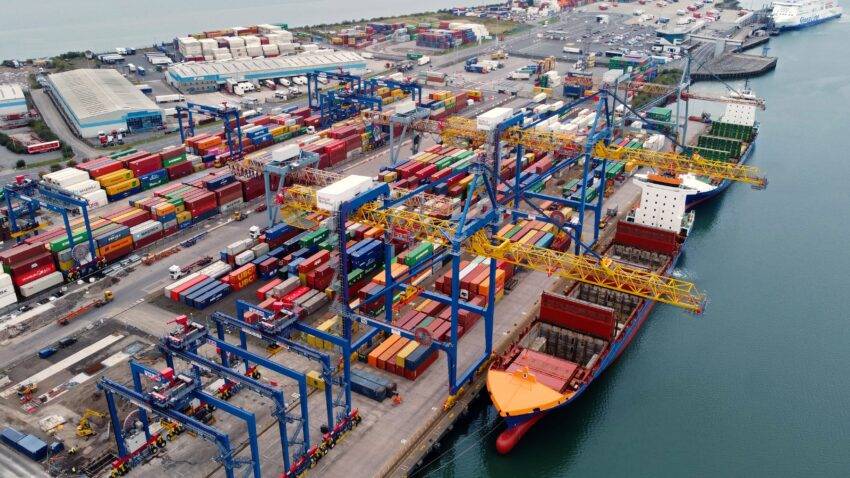Business
IT disruptions at the Brexit borders are delaying the import of perishable items into Britain by up to 20 hours

Trucks carrying perishable goods such as meat, cheese and cut flowers from the EU are experiencing delays of up to 20 hours at Britain’s busiest Brexit border post due to glitches in government IT systems.
These delays have caused significant disruptions, shortening the shelf life of products and prompting retailers to reject some orders.
Businesses have described the new border controls, introduced as part of the post-Brexit import regime, as a ‘disaster’. The government’s Automatic License Verification System (ALVS) has suffered several outages since checks were implemented early this month, resulting in lengthy delays at border crossings.
The worst disruption occurred last weekend, with dozens of trucks held at the Sevington post in Ashford, Kent, for periods ranging from eight to 20 hours due to a system glitch that forced manual document checks. An Italian goods importer reported that 18 of 23 trucks were delayed, with some having to wait between nine and 20 hours.
A company executive, who wished to remain anonymous, said: “We expected a maximum delay of four hours, and if they had not been checked by then they would be released. This is much longer.”
The Department for Environment, Food and Rural Affairs (Defra) confirmed that a technical issue was affecting its digital services, including ALVS, over the weekend. In response, importers had to manually submit documents for verification. Despite Defra’s claim that there were no significant delays, many businesses reported serious disruptions and a lack of communication.
The director of a Polish transport company described the weekend as a ‘disaster’, with many customers expressing frustration at the delays. Mariusz, a driver held in Sevington for more than eight hours, reported that about 25 other trucks were similarly stuck, some for up to 15 hours, with little information about their unloading times.
Customs agents and importers also reported that it was difficult to reach Defra officials by phone during the disruptions. One company, which sends 70 trucks to Britain every week, saw 40 vehicles delayed in Sevington, leading to some customers refusing deliveries of fresh produce from Poland and Eastern Europe.
Nigel Jenney, CEO of the Fresh Produce Consortium, highlighted the recurring issues with government IT systems since the new controls started, noting the significant costs and disruption to the sector. “There have been several incidents like this in the last two weeks, as well as a number of much smaller issues. This will not only cause massive disruption but also impose huge costs on the industry,” he said.
A spokesperson for Defra acknowledged the power outage affecting import processing systems, saying: “For the majority of vehicles at the border there were no significant delays, but we immediately activated emergency arrangements for the affected vehicles, working with HMRC and Border Force. We are working hard to resolve the issue and expect the systems to return to normal operation soon. Since the introduction of checks, our teams have been working closely with traders to ensure checks are carried out efficiently and quickly.”
The ongoing IT issues at Brexit border crossings underline the challenges businesses face in navigating new import regulations, and highlight the need for robust and reliable systems to support seamless trade.













